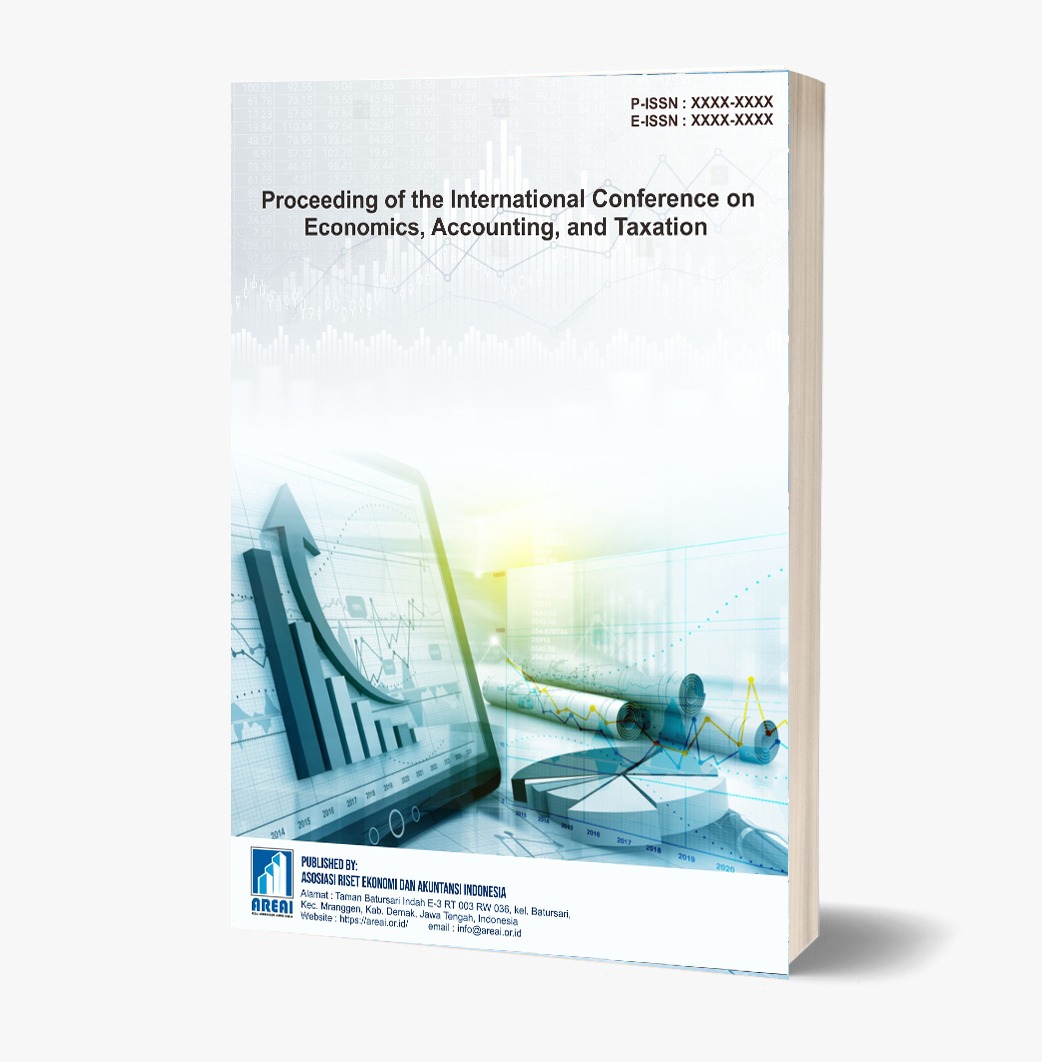Cost Implications of Naira Notes Redesign on Household and Money Market Operators in Taraba State
DOI:
https://doi.org/10.61132/iceat.v1i1.92Keywords:
Naira, Notes, Redesign, Household, Money Market OperatorsAbstract
This research work investigates cost implication of change in Naira notes on Household and money market operators in Taraba State. The study adopted a survey research design to obtain data about practices, situations, and views through questionnaires. The number of respondents for Households and Money Market Operators is 394 and 338 respectively. The study used a simple multistage and cluster sampling method to select the sample respondents. The study employed a descriptive statistic method; simple percentages and the Chi-square (x2) statistic were used for the computation and analysis of the data collected. The study found a significant increase in general costs of household and money market operators in Taraba State between 2022 and 2023. This policy significantly affected households and money market operators in Taraba State by increasing their general costs. The study recommends that a reasonable timeline be given to the implementation period with strict monitoring and control of commercial banks to erode favoritism and corruption in the process of policy implementation. There should be stability in the maximum cash withdrawal policy from all means: Point of sale (POS), automated teller machines (ATM) over the bank counter, etc., and adequate provisions for electronic banking for rural and urban centers should be made by financial sector administrators. The government should promote ceaseless cash traceability and accountability to keep the new notes as close to the banking system as possible.
Downloads
References
Abubakar, Y., Yandaki U.A. (2023). The 2022 Naira Redesign Programme in Nigeria: Implications on the Local Economy and Financial History. African Journal of Accounting and Financial Research, 6(2), 22–32. https://doi.org/10.52589/ajafr-gsbsqg7s
Anfofum, A.A., Afang, H.A. and Danpome, M.G. (2015) Analysis of the Main Determinants of Inflation in Nigeria. Research Journal of Finance and Accounting, 6, 144-155.
Emefiele G. (2022) Frequently Ask Questions on Naira Redesign Policy of 2033 www.cbn.gov.ng.
Gwin, B., Putu, R. (2017) Redenomination: Why is it effective in one country? But not in another. International Journal of Economics and Financial Issues, 7(3), 186–195.
Ibrahim, J. (2023). Naira redesign policy: When government invents a crisis, By Jibrin Ibrahim. Premium Times Nigeria. https://www.premiumtimesng.com/opinion/581003-naira-redesign-policy-when-government-invents-a-crisis-by-jibrin-ibrahim.html
James N, (2023) Currency Redesign in Nigeria. Letter to all depositors and other Financial Institutions. www.lukmanyusuf.com/2022/11/currency-red.
Krishnashwan (2007), Small-Sample Techniques. The NEA Research Bulletin, 38, pp99. USA: NEA Research
Ndukwe J, (2023) Monetary Policy and its Discontent Redesigning the Naira. NEA Research. https://businessday.ng/opinion/article/monetary-policy-and-its-discontent-redesigning-the naira
Numbeo M, (2023) Cost of Living in Nigeria. http://www.numbeo.com
Okoye, L., Olokoyo, F., Ezeji, N., Okoh, J., and Evbuomwan, O. (2019); Determinants of the behavior of the Inflation Rate in Nigeria. Investment Management and Financial Innovations, 16(2), 25–36
Olatunji E. (2023): Cost of Living in Nigeria. Business Day Analysis. www.businessday.com.
Olatunji, E. (2022). Cost of living spikes as food prices rise 26% in 1yr. Businessday NG. https://businessday.ng/business-economy/article/cost-of-living-spikes-as-food-prices-rise-26-in-1yr/
Olujobi, O. (2022), Macroeconomic Implications of the New Currency Refurbishment and Capital Formation in Nigeria. https://mpra.ub.uni-müenchen.de/115634/.
Oluwatosin M (2022) Macroeconomic Implications of the New Currency Refurbishment and Capital Formation in Nigeria. https://mpra.ub.uni-müenchen.de/115634/.
Oluwyinka A. (2016): Introduction of higher currency notes in Nigeria and the dynamics of inflation (1980–2014) Basic Research Journal of Business Management and Accounts, 5(4), 42–60. http://www.basicresearchjournals.org.
Pillah, T., & Patrick. (2023). Currency Redesign and Monetary Policy of Nigeria: An Evaluation. International Journal of Public Administration and Management Research (IJPAMR), 8(4). https://journals.rcmss.com/index.php/ijpamr/article/download/748/660
Prabawani, B. (2018) Monetory illusions: post-redenomination shopping behaviour. Journal of economics and sociology, 11(3), 161–169.
Udo, E. Abner, P., Ike R., Tingir T., and Ibekwe U. (2018) Effect of Administrative Capital Expenditure on Economic Development; an Emerging Nation Outlook Journal of Internet Banking and Commerce, 23(1), 1-17.
Žídek, L., Chribik, M. (2015). Impact of currency redenomination on inflation case study. Asian Economic and Financial Review, 5(6), 908-914.






